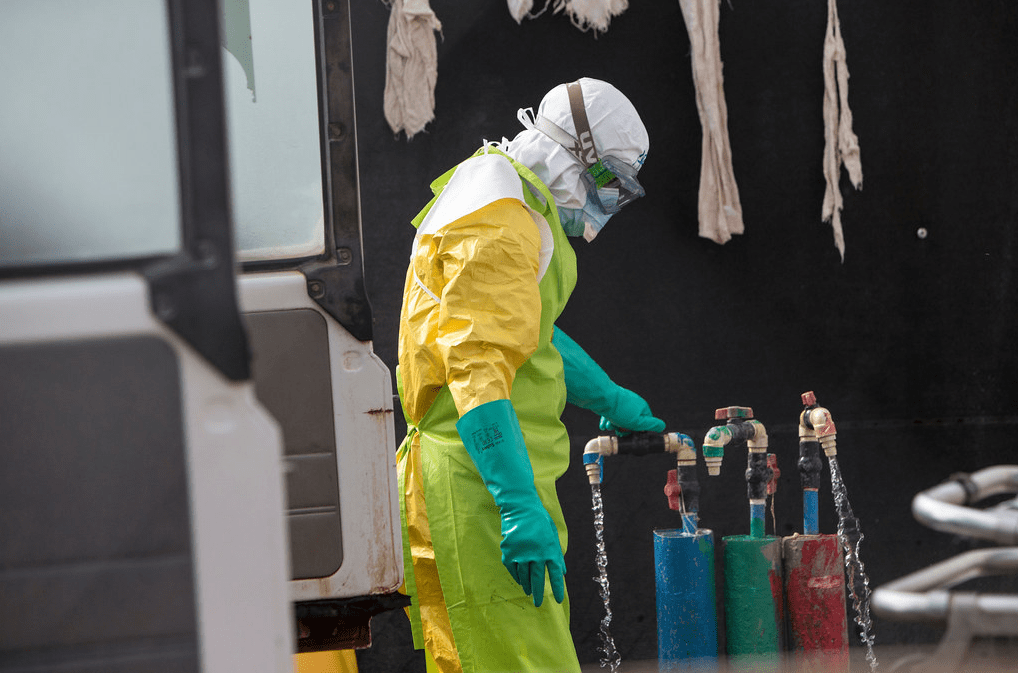
The latest Ebola outbreak in the Kasai province of the southern Democratic Republic of Congo (DRC) is facing significant challenges due to inadequate infrastructure, including poor road networks and limited transportation options. This logistical bottleneck has severely delayed the transportation of critical samples to the National Public Health Laboratory (INRB) in Kinshasa, which took eight days to arrive, finally reaching the lab on September 3.
The index case, a pregnant woman, succumbed to the disease on August 25, just five days after seeking medical assistance at Bulape General Hospital in Kasai province. She presented with symptoms including high fever, bloody diarrhea, hemorrhage, and extreme weakness. At least 15 individuals, among them four healthcare workers, have died in this latest outbreak, as reported by the World Health Organization (WHO).
Delayed Response and Rising Cases
Currently, there are 28 suspected cases under investigation in the Bulape health zone, which is situated near the border with Angola. Tragically, two healthcare workers who initially treated the index case have also died after developing similar symptoms. Unconfirmed reports suggest that a third healthcare worker and lab technician who had contact with the woman has also died.
The DRC Health Ministry officially declared an outbreak on September 4, following laboratory confirmation of the Zaire strain of Ebola Virus Disease (EVD) from the six samples. These samples were verified using GeneXpert and polymerase chain reaction (PCR) assays. According to the WHO,
“The results obtained from whole genome sequencing suggest that the outbreak is a new zoonotic spillover event and is not directly linked to the 2007 Luebo or 2008/2009 Mweka EVD outbreaks.”
Public Health Response and Historical Context
The DRC’s Ministry of Health, with assistance from WHO and other partners, is actively implementing public health measures to contain the outbreak. The WHO has assessed the national public health risk as high, underscoring the urgency of the situation. The Ebola virus is primarily transmitted to humans through close contact with the blood or secretions of infected wildlife and subsequently spreads through human-to-human transmission.
This marks the sixteenth Ebola outbreak in the DRC since the virus was first identified in 1976. The most recent case before this outbreak was reported in 2022. A particularly devastating outbreak between 2018 and 2020 resulted in nearly 2,300 deaths in the North Kivu and Ituri regions.
Infrastructure Challenges and Global Health Implications
The current outbreak highlights the critical need for improved infrastructure in the DRC, which is essential for timely medical response and containment efforts. The delays in sample transportation underscore the broader challenges faced by health authorities in remote regions, where logistical constraints can hinder effective disease management.
Addressing these infrastructure deficits is crucial not only for managing the current outbreak but also for strengthening the DRC’s overall public health capacity. As the global community continues to combat the spread of infectious diseases, the situation in Kasai province serves as a stark reminder of the interconnectedness of infrastructure and health outcomes.
Efforts to combat the infodemic in health information and support policy reporting from the global South are ongoing. A growing network of journalists in Africa, Asia, Geneva, and New York are working to connect regional realities with global debates, providing evidence-based, open-access news and analysis.
For those interested in supporting these efforts, contributions can be made through various channels to ensure that accurate and timely information continues to reach those who need it most.







